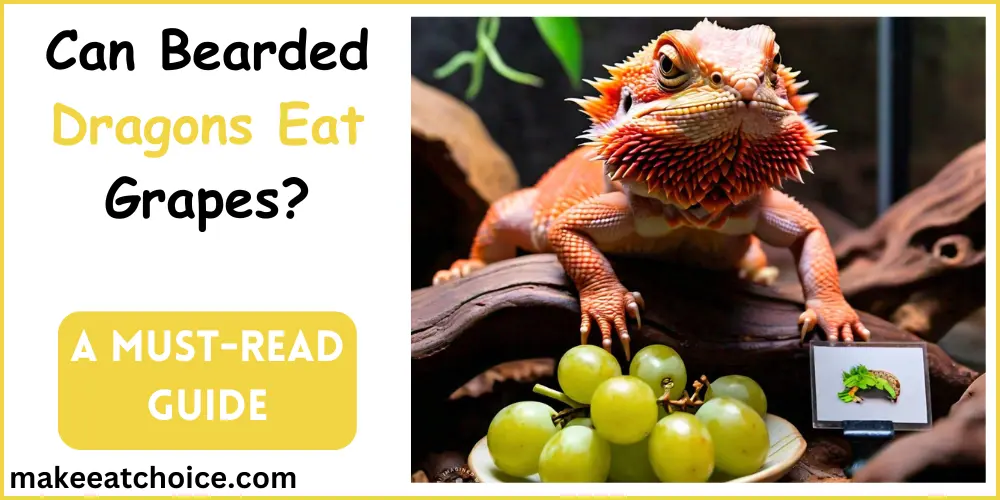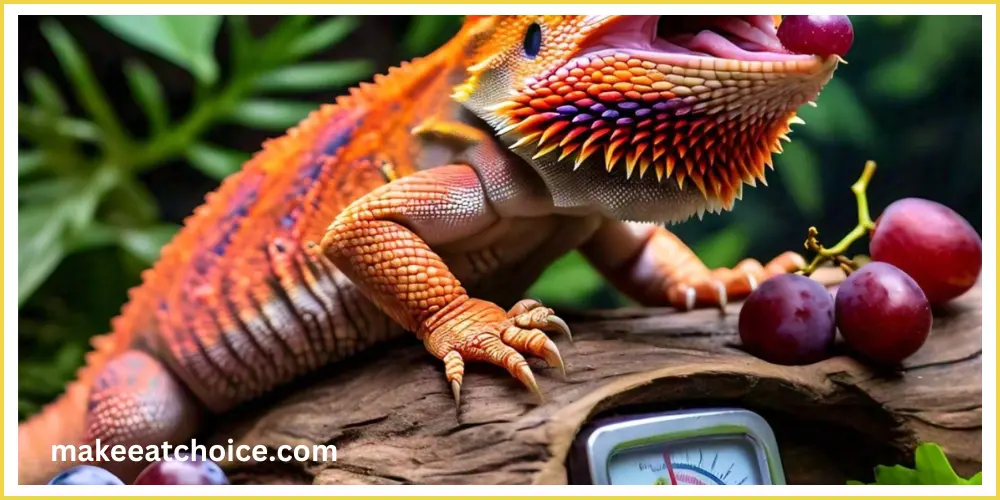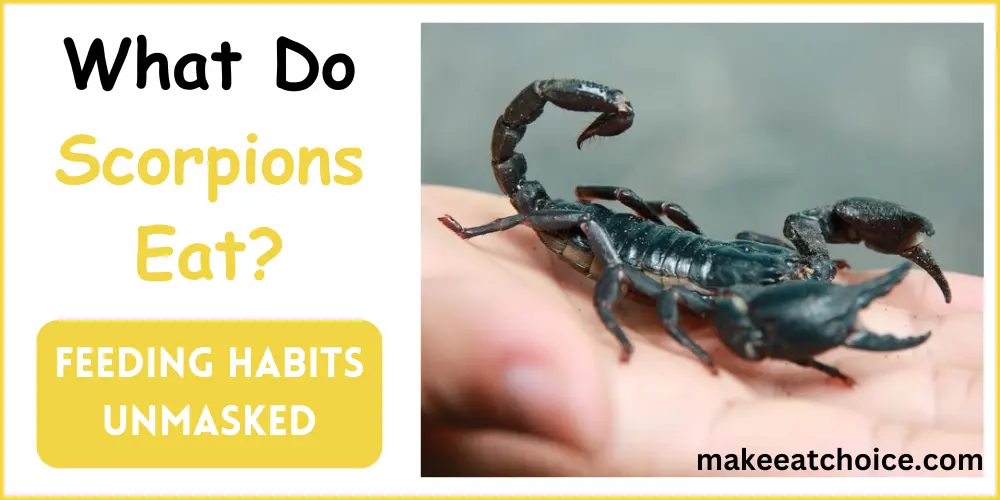
Bearded dragons have gained significant popularity among reptile enthusiasts and pet enthusiasts alike. Their calm demeanor, distinct look, and easy upkeep have made them a popular choice for households worldwide. Can bearded dragons eat grapes? However, just like any responsible pet owner, those caring for these adorable creatures must ensure their diet is diverse and appropriate. Many people wonder if grapes are safe for bearded dragons to consume. This article aims to guide how fruit, such as grapes, can be incorporated into the diet of these fascinating reptiles.
Can Bearded Dragons Eat Grapes?
Bearded dragons can eat grapes, but offering them in moderation is important, just like any other treat. Grapes, regardless of color, can be a delicious and refreshing snack for your bearded dragon, providing a nice change to their diet. Nevertheless, it is advisable to offer grapes in moderation to prevent potential health issues like obesity or digestive problems, as they contain a high sugar content.
Experts advise feeding an adult bearded dragon a maximum of two grapes per week, while younger dragons should only have half a grape within the same period. It’s important to cut the grapes into smaller pieces to reduce the risk of choking and aid in digestion. Furthermore, grape leaves can be a healthy choice for bearded dragons if given in moderation. These leaves are rich in vitamin A, an essential nutrient, but excessive consumption can be harmful.
Can bearded dragons eat grapes? Before incorporating grapes or any unfamiliar food into your bearded dragon’s diet, it is advisable to seek guidance from a veterinarian, particularly if your pet has preexisting health issues. Providing a well-rounded diet that includes a variety of leafy greens, vegetables, and occasional fruits like grapes is essential for maintaining the health and happiness of your bearded dragon.
Understanding Bearded Dragon Diets
Bearded dragons are omnivorous in the wild, consuming insects and plant matter. Can bearded dragons eat grapes? The principal components of their diet are vegetables and leafy plants, supplemented with insects for protein.
Maintaining an appropriate proportion of these dietary constituents is vital for your bearded dragon’s optimal health and vitality, guaranteeing that they consume the proper quantity of minerals and vitamins to sustain their development and lifespan.
How Often Can Bearded Dragons Have Grapes?
The guiding principle when contemplating can bearded dragons eat grapes and the introduction of grapes into the diet of your bearded dragon should be moderation. Fruits are infrequently consumed by bearded dragons in the wild; they are more of an uncommon treat or supplement to their primary diet.

Therefore, although grapes and other fruits, such as berries, may taste good, they should not be incorporated into your beardie’s regular diet.
Why Can’t Bearded Dragons Have Grapes All the Time?
Excessive consumption of fruits, including grapes, which are rich in natural carbohydrates, may result in health complications such as obesity and diabetes.
Due to their sensitive stomachs, bearded dragons should consume a diet limited in fats and sugars. Constantly and excessively feeding your bearded dragon fruits may result in digestive and other health complications.
Fruits to Avoid for Your Bearded Dragon
Besides grapes, several other fruits are not suitable for your bearded dragon. These include:
- Avocado, which contains a toxic substance called person
- Rhubarb, which is high in oxalic acid and can be toxic
- Citrus fruits, which are too acidic for your beardie’s digestive system
It’s important to remember that not all fruits are made equal, and some are more tolerable than others. Always research before introducing a new fruit to your bearded dragon’s diet.
Benefits of Grapes for Bearded Dragons
Bearded dragons can benefit from grapes’ nutritional value, which includes their high vitamin and water content. They are rich in vitamin K, which aids in blood coagulation, and vitamin C, which can strengthen the immune system of your bearded dragon.
Additionally, they are rich in water, which can assist in hydrating your bearded dragon, particularly if it is hesitant to consume still water from a dish.
Guidelines for Feeding Grapes to Bearded Dragons
Serving grapes to your bearded dragon in moderation and small portions is advisable. Occasional grapes served alongside a well-balanced meal of vegetables, and other verdant greens are preferable as treats. Additionally, uneaten grapes should be discarded after a few hours to prevent deterioration, which can promote bacterial growth and illness.
FAQs
How Many Grapes Can A Bearded Dragon Eat?
Once or twice per week, bearded dragons should not consume more than one or two small grape segments. Health problems can result from overfeeding; therefore, a small quantity should be deemed adequate.
What Fruit is Toxic To Bearded Dragons?
As stated previously, Avocados and rhubarb are toxic to bearded dragons and should never be fed to them. These fruits are potentially fatal or induce severe illness.
Can Lizards Eat Grapes?
Although not all reptile species can consume grapes, bearded dragons are among the few that do so occasionally. If uncertain, consult your veterinarian at all times.
What Should Beards Not Eat?
Bearded dragons should avoid consuming foods such as spinach, which is rich in oxalic acid and can bind calcium, and insects captured in the wild, given the high probability that they harbor parasites.
Conclusion:
Even though grapes can supplement your bearded dragon’s diet with hydration and beneficial nutrients, they should be considered an occasional indulgence rather than a staple. Can bearded dragons eat grapes? In addition to leafy foliage, vegetables, and appropriately sized insects, bearded dragons derive optimal nutrition from sporadic fruits such as grapes.
A well-balanced diet is imperative for promoting longevity, health, and vitality. Seek guidance personalized to your bearded dragon’s specific requirements from an experienced reptile veterinarian or a knowledgeable staff member at a pet store if you are uncertain which foods to incorporate into its diet.
References:



